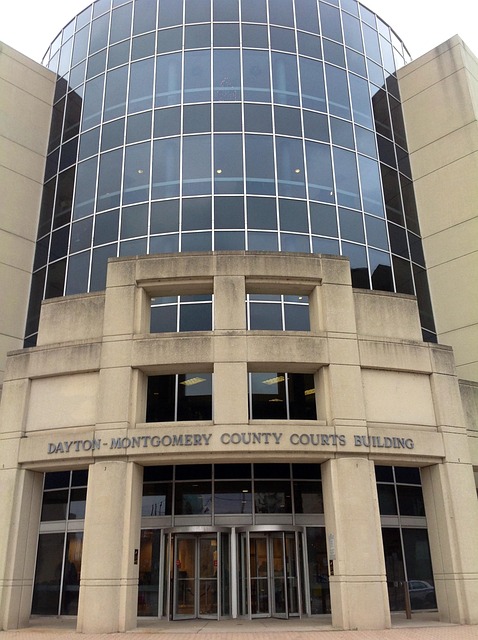Criminal law enforcement plays a vital role in Consumer Protection Under Competition Law by investigating and prosecuting white-collar and economic crimes, ensuring fair market competition, ethical business practices, and consumer rights. This deterrence and successful prosecutions create transparency, build trust, and safeguard consumer choices while promoting economic stability. Competition Law prevents dominant entities from exploiting consumers, fosters innovation, and drives down prices, ultimately enhancing product quality. In the digital age, strengthening regulatory bodies with expanded powers and enhancing public awareness through educational campaigns are crucial strategies to revolutionize consumer protection.
In the intricate web of modern society, criminal law enforcement plays a pivotal role in safeguarding consumers from deceptive practices. This article delves into the interconnectedness of criminal law and consumer protection, with a specific focus on competition law’s influence. We explore how these legal frameworks collaborate to ensure fair markets and guard consumer rights. By examining strategies for enhancing consumer protection, we aim to illuminate the path towards a more robust legal framework for Consumer Protection Under Competition Law.
- The Role of Criminal Law Enforcement in Consumer Protection
- Competition Law and its Impact on Consumer Rights
- Strategies for Enhancing Consumer Protection Within the Legal Framework
The Role of Criminal Law Enforcement in Consumer Protection
Criminal law enforcement plays a pivotal role in consumer protection, particularly when it comes to addressing white-collar and economic crimes. These types of offenses often involve intricate schemes that can have far-reaching impacts on consumers across the country. By investigating and prosecuting such cases, law enforcement agencies help maintain fair competition in the market, ensuring businesses operate ethically and protect consumers’ rights.
The role of criminal law enforcement in consumer protection extends beyond individual cases. It helps create a deterrent effect, discouraging businesses from engaging in fraudulent or deceptive practices that could harm consumers. Furthermore, successful prosecutions send a clear message to companies that such misconduct will not be tolerated, fostering a more transparent and trustworthy business environment for everyone. In terms of competition law, criminal enforcement is essential for upholding the principles of fair trade, thereby safeguarding consumer choices and promoting economic stability.
Competition Law and its Impact on Consumer Rights
Competition Law plays a pivotal role in safeguarding consumer rights by promoting fair business practices. This legal framework ensures that markets remain competitive, preventing any single entity from dominating and exploiting consumers. By fostering competition, it drives innovation, lowers prices, and enhances product quality, ultimately benefiting end-users. The impact of these laws is felt across all stages of the investigative and enforcement process, ensuring businesses operate within ethical boundaries.
Moreover, Competition Law encourages a balanced interplay between respective business interests, philanthropic initiatives, and political objectives. It prevents anti-competitive behaviors like price-fixing and market division, thereby preserving consumer protection as a core aspect. This holistic approach not only safeguards rights but also fosters a sustainable and thriving economy, where businesses thrive through fair competition, and consumers reap the benefits of accessible, affordable, and high-quality goods and services.
Strategies for Enhancing Consumer Protection Within the Legal Framework
In today’s digital era, consumer protection under competition law has become paramount for ensuring fair practices in the market. To enhance consumer trust and safeguard their rights, legal frameworks must evolve to address emerging challenges. One key strategy involves strengthening regulatory bodies with enhanced investigatory powers, enabling them to conduct thorough examinations at all stages of the investigative and enforcement process. This proactive approach aims to deter unethical behavior and achieve extraordinary results by holding perpetrators accountable for their actions.
Additionally, fostering public awareness campaigns can empower consumers to make informed decisions. Educating folks about their rights under competition law empowers them to report suspicious activities, thereby contributing to an unprecedented track record of successful cases. Such collaborative efforts not only revolutionize consumer protection but also drive a culture of integrity within the legal landscape.
Criminal law enforcement plays a pivotal role in safeguarding consumer rights, especially within the complex landscape of competition law. By rigorously enforcing laws and regulations, authorities ensure fair market practices, fostering an environment that promotes transparency and protects consumers from deceptive or anti-competitive behaviors. Enhancing Consumer Protection Under Competition Law requires a multi-faceted approach, combining robust legal frameworks with innovative strategies to stay ahead of evolving consumer needs. This holistic approach not only safeguards individual rights but also contributes to a healthier, more competitive market for all participants.






